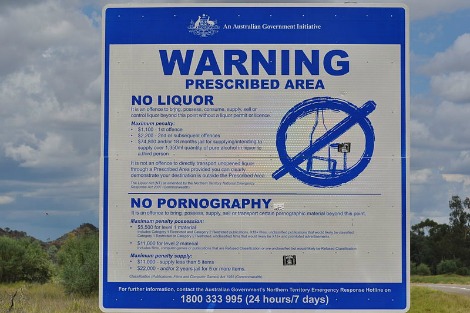The ethics of paternalism in Aboriginal policy
3 Comments
Callum Denness | 24 September 2013
Callum Denness | 24 September 2013
 Following the abuse received by Adam Goodes from a teenage spectator in the AFL's Indigenous round, and the subsequent remarks made by Eddie McGuire, the country became embroiled in a debate about racism in modern Australia. The debate was about words — 'ape' was the pejorative used by the Collingwood spectator — and in our rush to condemn, defend or make sense of the ensuing debate yet more words were spilled across newspaper columns, blog posts, broadcast media and social media.
Following the abuse received by Adam Goodes from a teenage spectator in the AFL's Indigenous round, and the subsequent remarks made by Eddie McGuire, the country became embroiled in a debate about racism in modern Australia. The debate was about words — 'ape' was the pejorative used by the Collingwood spectator — and in our rush to condemn, defend or make sense of the ensuing debate yet more words were spilled across newspaper columns, blog posts, broadcast media and social media.
Meanwhile, the Northern Territory introduced its Mandatory Alcohol Treatment Bill which, if passed, will see more Aboriginal people incarcerated. We were too busy describing the modern face of racism to notice.
The importance of words cannot be diminished but newspapers and bulletins can hold only so many. While plenty were dedicated to the story of McGuire, the teenage girl and Goodes, none mentioned that in 20 years the proportion of Aboriginal people held in custody has grown from one in seven to one in four. The introduction of laws which would criminalise alcohol consumption and introduce more Aboriginal people to jail made the news but did not incite the passions of the commentariat or public, being devoid of sport stars and television personalities.
 |
No comments:
Post a Comment
This blog does not take Anonymous comments. Experience shows that comments cluttered with "Anonymous" are boring and people don't know whether "Anonymous" is one person or many. This is not a decision about freedom of speech. It is a decision about boring or unwillingness to be known by even a pseudonym.